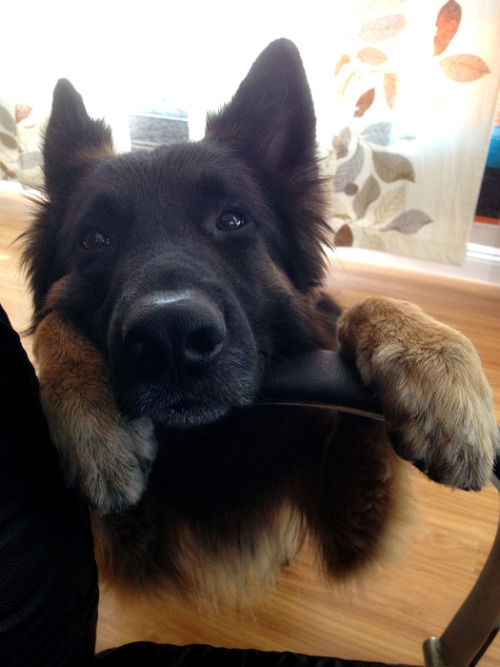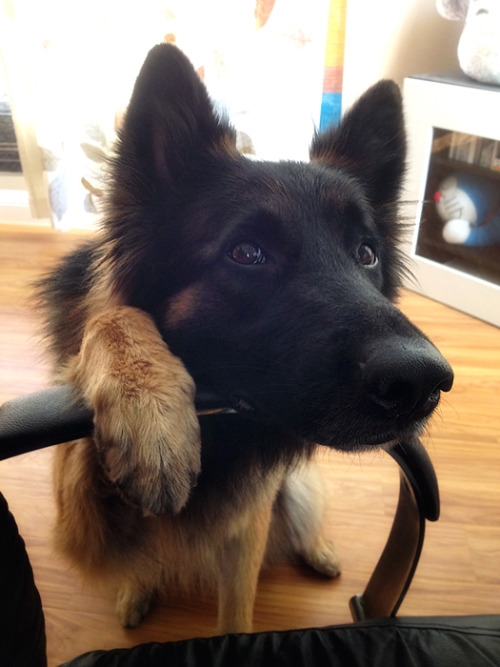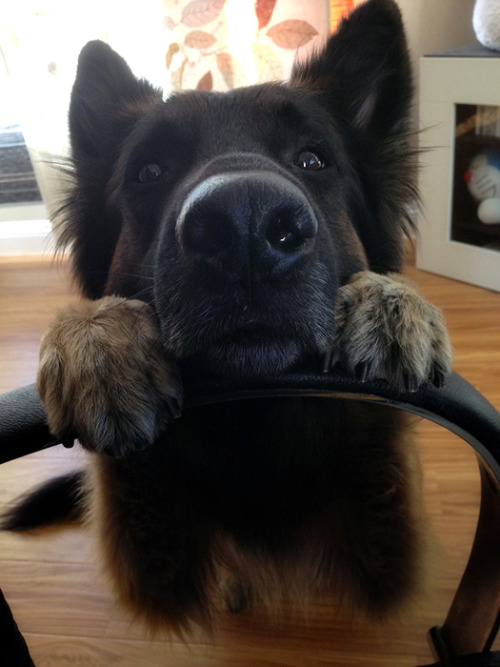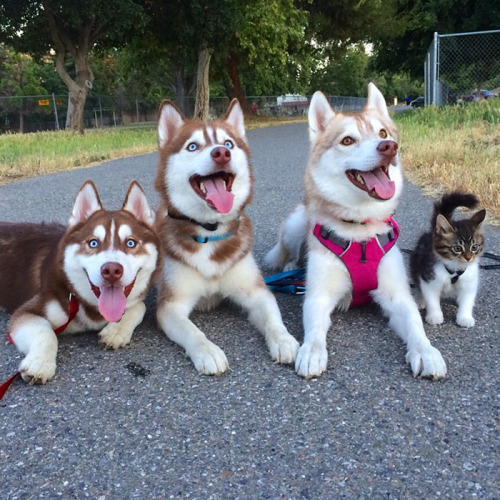Accurate Point, When Someone Walks Into A School With An AK47, Terrorism Is On Your Doorstep. #WeThePeople

Accurate point, when someone walks into a school with an AK47, terrorism is on your doorstep. #WeThePeople
More Posts from Sinkittn and Others

Anonymous asks:
Imagine a world where one’s DNA, blood, and tissue samples were on file. Everyone is on file. Whenever someone with a compatibility to you fell deathly ill, you could be compelled to give them blood, marrow, a kidney, a portion of intestine or pancreas or liver or lung. There are no donor waiting lists. Countless lives are saved. So why does it sound like a dystopian novel? Oh right, because treating every human organ as if it were a uterus would be terrifying.
^^^^YUP
I say this a lot but they insist it’s not the same thing. It really is the same though.
If it really was about ‘all life is sacred’ they would be 100% with the idea of everyone being a registered donor and not having a choice when it came to giving up something, so long as there was a reasonable chance they would survive the procedure. Sure, some people would die after giving a kidney or lung, but most don’t so no one should have a choice.
And it is for a stranger when it involves pregnancy too. You’ve never actually met it, you don’t know it. It’s a stranger that happens to share your DNA. Sharing DNA doesn’t make you not strangers either. I share DNA with my maternal grandfather, but I’ve never met him. He’s a stranger. I share DNA with my paternal uncle and cousin, but I’ve met one of them only once, and the other never. They’re strangers who I happen to share DNA with. Same with a fetus. It’s a stranger I would happen to share DNA with should one ever exist.

This post is going to explore how biphobia, misogyny, and rape culture intersect at an institutional level to cause the disproportionate rates of sexual violence seen against bisexual women.
Trigger warnings: discussion of rape, corrective rape, sexual assault, sexual harassment, intimate partner violence, abuse, victim blaming, depression, PTSD, suicide, and some graphic examples of biphobic victim blaming
Bisexual women have the highest rates of rape and sexual assault
Bisexual women have a 46.1% chance of being forcibly raped. This rate is 2.6 times higher than straight women and 3.5 times higher than lesbian women. Bisexual women also have a 74.9% chance of being coercively raped or sexually assaulted. This rate is 1.7 times higher than straight women and 1.6 times higher than lesbian women (source).
78% of bisexual women report lifetime sexual victimization. Bisexual women report more severe adult victimization and significantly greater rates of revictimization (source).
So why is this happening?
Bisexual women are hypersexualized. We are stereotyped as promiscuous, slutty, dirty, and always interested in sexual attention. Men are taught by our culture to view bisexual women as sexual objects whose purpose is to fulfill their sexual desires, making it that much easier to disrespect bisexual women’s consent and justify sexual violence against us. This is closely tied to the victim blaming stereotypes that are used to invalidate any victim who can be viewed as too sexual and therefore not a valid victim. As Shiri Eisner put it, “what we have to say about [sexual attention], and whether or not we want to be sexual with anyone, just doesn’t matter. Because our bisexuality is made out to be not about us, but about cishet men” (source).
Bisexual women are fetishized. We are seen as sexual objects, as walking porn fantasies, as one-third of a threesome, rather than actual human beings. This causes sexual harassment, sexual assault, abuse, and rape that are specific to (one-male, two-female) threesome fantasies. Bi women frequently report experiences of men soliciting them for threesomes the moment they discover their bisexual identity, which is a form of degrading sexual harassment. Bi women report similar experiences with online dating profiles, even if their profile explicitly states that they are not interested in threesomes. Bi women are also coerced or forced into threesomes because of this.
Other biphobic stereotypes about bi women contribute to sexual assault. For example, we are also stereotyped as pretending to be bisexual specifically for men’s attention, which frames things like sexual harassment, assault, and rape as forms of “attention” that we wanted to receive.
Bi women are sometimes correctively raped. Corrective rape is a hate crime in which someone is raped because of their sexual orientation or gender identity. Bisexual women experience corrective rape as a form of punishment for being bisexual, usually with the goal of making them heterosexual.
Although much of this is related to the way men (especially cis, straight men) are taught to view bisexual women, and although most of the sexual violence against bisexual women is perpetrated by men, people of any gender are capable of believing these stereotypes and perpetuating sexual violence against bisexual women.
Bisexual women have the highest rates of intimate partner violence
Bisexual people report significantly higher rates of emotional, financial, sexual, and physical intimate partner violence compared to gay and lesbian people (source).
49.3% of bisexual women are victims of severe physical intimate partner violence. Bisexual women have a 61.1% lifetime prevalence of rape, physical violence, and/or stalking by an intimate partner (source).
Why?
Abusers tend to target marginalized people, period. Marginalized people are already in a position to have lower self-esteem, be less likely to have supportive friends, family, and communities, have less access to services like counseling and healthcare, be more likely to be treated poorly if they report, and on and on. This is painfully true for bisexuals, because we are not only unsupported by society at large but also often rejected from gay and lesbian spaces and denied their support.
Abusive partners sometimes use biphobia to perpetuate sexual violence against their bisexual partners. Abusers might coerce or force their bisexual partners into unwanted sexual acts or threesomes because they are bisexual and they’re “supposed” to want to do those things. Some abusers force their bisexual partners into unwanted open or polyamorous relationships, or expect their bisexual partners to tolerate cheating.
Abusers draw on society’s biphobic narratives to reinforce and legitimize their abuse. For example, it’s common for abusers to say abusive things to their victims like this: “I know you’re cheating on me.” “No one else will ever love you.” “I know you’re lying to me.” But watch how the abuse is strengthened by biphobia: “I know you’re cheating on me, because everyone knows bisexuals are cheaters.” “No one else will ever love you, because no one wants to date a bisexual.” “I know you’re lying, because bisexuals aren’t trustworthy.” And sometimes, biphobia itself is the abuse. “You have to call yourself straight/gay/lesbian if you’re going to be with me.” “I will out you as bisexual if you don’t [do this].” When a bi person being abused hears the same biphobic stereotypes they’ve heard their whole life, it’s not just coming from their abuser - it feels like the whole world agrees. It’s a strategy to make victims feel even more powerless.
Bisexual women have the lowest rates of social support after disclosing victimization
(source)
Bisexual women have low social support to begin with. Bisexual people have less social support from family and friends (source). Bisexual people are less likely to be out of the closet than gay and lesbian people (source). Bisexual women and lesbians have comparable rates of mental distress in non-urban areas, but while lesbian women’s mental distress lowers significantly in urban areas, bisexual women’s nearly double. Researchers believe this is because of the lack of social support for bisexual women from lesbian and gay communities (source).
Biphobic stereotypes about bisexual women create barriers to social support after disclosing trauma. For example, we are stereotyped as untrustworthy liars, which leads to people being less likely to believe or support bi women survivors. The stereotypes of bisexual women as promiscuous and slutty lead to victim-blaming and the belief that either we were not raped or that it was our fault. The stereotype that bisexual women are lying for attention, combined with the widespread belief that women lie about being raped for attention, also contributes to this.
Bisexual women are often excluded from LGBT communities and have difficulty finding bisexual communities. If they can find a community, the chances of it being a safe space for bi women survivors are quite slim. LGBT and bi communities continue to have problems addressing intra-community issues of misogyny and rape culture.
Sexual assault resources cater to cisgender straight women. LGBT recovery resources are rare, and they usually cater to cisgender gay and lesbian victims. These resources are often unhelpful for bi women, or even unsafe or hostile towards them - although bisexual women survivors report reaching out to the greatest number of formal support resources, they were the least likely to report these resources as helpful (source). There are no known rape recovery resources specifically for bisexual women, other than this blog.
Other resources, such as counseling, also often have problems of misogyny, biphobia, and rape culture. Bisexual people often report negative experiences with mental healthcare providers who view their bisexuality as a symptom of mental illness to be overcome. Bisexual people sometimes even experience conversion therapy when seeking out counseling from someone who pressures them to adopt a straight or gay identity instead of a bisexual one. In the same study mentioned above, bisexual women survivors were the most likely to speak to a psychologist, psychiatrist, or mental health professional, but, again, the least likely to report these services as helpful (source).
Bisexual women have the highest rates of depression and PTSD post-rape
(source)
Bisexual women have higher rates of mental illness to begin with. 45.4% of bisexual women have considered or attempted suicide. This compares to 34.8% for bisexual men, 29.5% for lesbian women, 25.2% for gay men, 9.6% for straight women, and 7.4% for straight men (source). Bisexual people report higher rates of anxiety, depression, suicidality, and negative affect compared to their gay and heterosexual counterparts (source).
Bi women survivors are more likely to have experiences that increase the likelihood of depression. Depression after sexual violence is often related to a lack of support, lack of access to recovery resources, feelings of isolation, and experiences of victim blaming - areas in which bisexual women are much worse off.
Similarly, bi women survivors are more likely to have experiences that lead to PTSD. PTSD after sexual violence can be related to the traumatic nature of the sexual violence itself or to retraumatizing experiences in the aftermath, and bisexual women survivors experience unique and frequent retraumatization. For example, bisexual women frequently encounter degrading and sexually objectifying language about themselves from society at large as well as from the LGBT community - bi women are described as “slutty,” “dirty,” “sexually available to men,” “cocksuckers,” “dick-worshippers,” “bihets,” and so on. Such language is sexually objectifying and misogynistic towards all bisexual women, and very triggering to those of us who have been assaulted or raped by cis men. Experiencing frequent sexual harassment like unwanted sexual attention and threesome proposals is also retraumatizing. Bisexual women also report higher rates of revictimization, which is extremely retraumatizing and associated with higher chances of developing PTSD.
The inaccessibility of mental health resources for bi women survivors makes it difficult for us to cope with and recover from mental illness.
Other reasons
Bisexual people are more likely to be disabled, transgender and people of color, meaning that disabled bisexual women, trans bisexual women, and bisexual women of color are dealing with ableism, transmisogyny, and/or racism on top of biphobia, misogyny, and rape culture. This significantly increases their chances of facing sexual violence and intimate partner violence. If they do, they are even more likely to experience depression, PTSD, and low social support. It is also important when analyzing the above statistics to keep in mind that white, cisgender, and abled bisexual women have lower chances of these negative experiences.
Bi women survivors who didn’t figure out their bisexual identity until after their trauma, or who were closeted to their abusers and rapists, are still impacted by all of this. Marginalization, even when not obvious or announced, still makes people more vulnerable to abuse and violence. Issues like low social support, inaccessible recovery resources, and higher rates of mental illness are problems for these bi women survivors as well.
Since this issue is largely invisible and misunderstood, there are no known sexual violence prevention efforts specific to bisexual women.
Resources
Bi: Notes for a Bisexual Revolution by Shiri Eisner
Shiri Eisner’s interview with the Bi Women Support Network
Healing from Rape as a Bisexual Woman
How to Find a Bi Competent Therapist
More statistics


OMG, so adorable.
Sweet lying down kitty
Pattern available for a very wee fee over at AmigurumiPatterns.net
Totally LOVE!
christmas eve what about christmas adam





person: i really like you.
½ of me: why?
the other ½: of course you do, bitch i’m amazing





“be the bigger person” no?? im 5"1 and bitter u be the bigger person???
-
 maestro-jedi liked this · 2 years ago
maestro-jedi liked this · 2 years ago -
 asvincere liked this · 3 years ago
asvincere liked this · 3 years ago -
 screeching-taco liked this · 3 years ago
screeching-taco liked this · 3 years ago -
 stowks liked this · 3 years ago
stowks liked this · 3 years ago -
 minecrafttortie liked this · 3 years ago
minecrafttortie liked this · 3 years ago -
 farm-lesbian reblogged this · 3 years ago
farm-lesbian reblogged this · 3 years ago -
 smfpsv liked this · 3 years ago
smfpsv liked this · 3 years ago -
 hellyep liked this · 3 years ago
hellyep liked this · 3 years ago -
 lestatasahotgirl reblogged this · 3 years ago
lestatasahotgirl reblogged this · 3 years ago -
 lez0mbie reblogged this · 3 years ago
lez0mbie reblogged this · 3 years ago -
 fetusdeletustotalus reblogged this · 3 years ago
fetusdeletustotalus reblogged this · 3 years ago -
 fetusdeletustotalus liked this · 3 years ago
fetusdeletustotalus liked this · 3 years ago -
 pure-reborn-fieldofbentgrass liked this · 3 years ago
pure-reborn-fieldofbentgrass liked this · 3 years ago -
 hellanahmean reblogged this · 3 years ago
hellanahmean reblogged this · 3 years ago -
 angrysoulprofessorwombat liked this · 4 years ago
angrysoulprofessorwombat liked this · 4 years ago -
 alieninnerchid-blog reblogged this · 4 years ago
alieninnerchid-blog reblogged this · 4 years ago -
 mynamestrash liked this · 5 years ago
mynamestrash liked this · 5 years ago -
 marielc07 reblogged this · 6 years ago
marielc07 reblogged this · 6 years ago -
 123-rip reblogged this · 6 years ago
123-rip reblogged this · 6 years ago -
 marielc07 liked this · 6 years ago
marielc07 liked this · 6 years ago -
 rimjobaftertaste reblogged this · 7 years ago
rimjobaftertaste reblogged this · 7 years ago -
 kjwolf31 reblogged this · 7 years ago
kjwolf31 reblogged this · 7 years ago -
 ripleytwd liked this · 7 years ago
ripleytwd liked this · 7 years ago -
 schizotrichia liked this · 7 years ago
schizotrichia liked this · 7 years ago -
 sweet-and-sourwolf liked this · 7 years ago
sweet-and-sourwolf liked this · 7 years ago -
 theamazinggrayson reblogged this · 7 years ago
theamazinggrayson reblogged this · 7 years ago -
 owiekawa liked this · 7 years ago
owiekawa liked this · 7 years ago -
 whrilybird reblogged this · 7 years ago
whrilybird reblogged this · 7 years ago -
 whrilybird liked this · 7 years ago
whrilybird liked this · 7 years ago -
 faithinthefuture-louis liked this · 7 years ago
faithinthefuture-louis liked this · 7 years ago -
 krushmaster liked this · 7 years ago
krushmaster liked this · 7 years ago -
 alil2confident reblogged this · 7 years ago
alil2confident reblogged this · 7 years ago -
 subversivegrrl reblogged this · 7 years ago
subversivegrrl reblogged this · 7 years ago -
 resurrectionofannabellee reblogged this · 7 years ago
resurrectionofannabellee reblogged this · 7 years ago -
 sugarcoveredmoose liked this · 7 years ago
sugarcoveredmoose liked this · 7 years ago -
 adriana-a7x reblogged this · 7 years ago
adriana-a7x reblogged this · 7 years ago -
 adriana-a7x liked this · 7 years ago
adriana-a7x liked this · 7 years ago -
 coffee-swimmer liked this · 7 years ago
coffee-swimmer liked this · 7 years ago -
 pinklemonademoon liked this · 7 years ago
pinklemonademoon liked this · 7 years ago -
 butchfaith liked this · 7 years ago
butchfaith liked this · 7 years ago -
 nycooldog liked this · 7 years ago
nycooldog liked this · 7 years ago